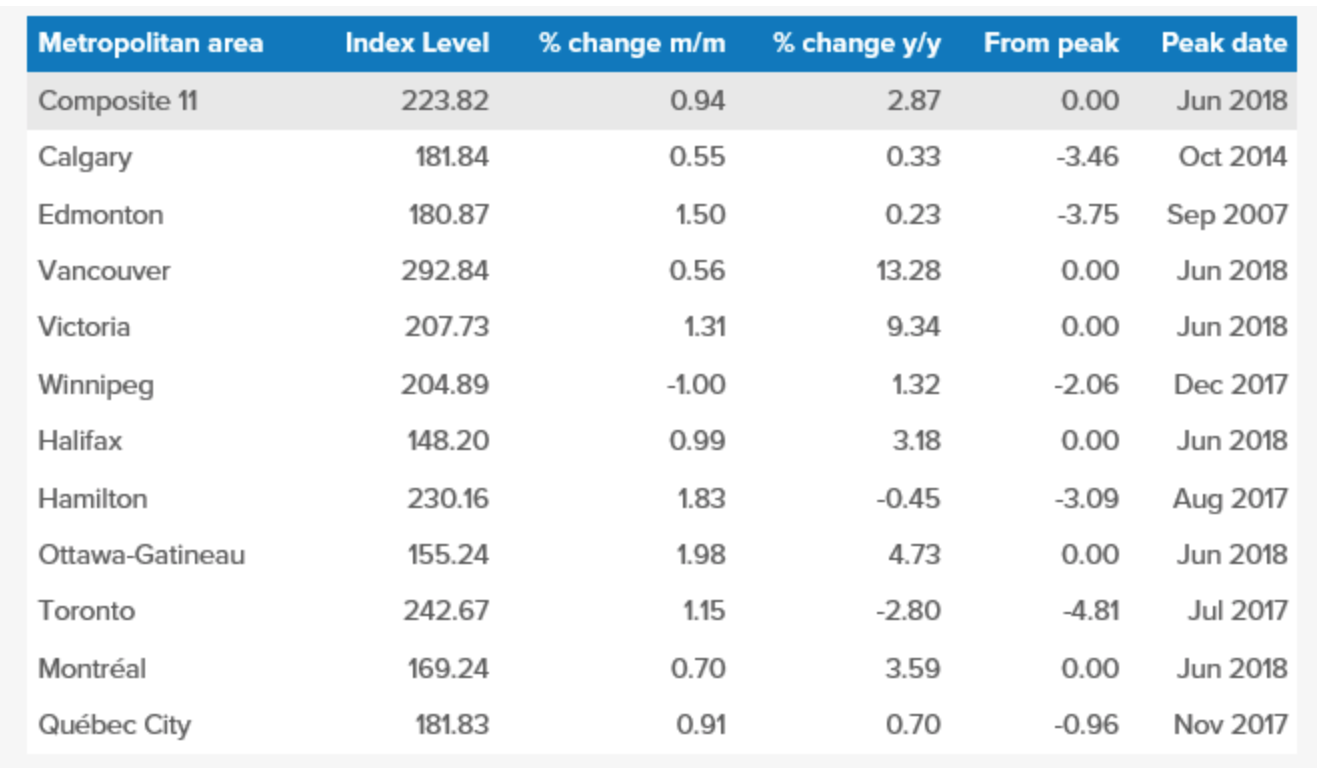Economic Outlook
By simply looking at the returns of the S&P 500 in the first half of 2018, one could be forgiven for thinking returns were decent and that markets were uneventful. by the close of the books in June, the S&P 500 managed a price gain of 1.7% or 2.6% including dividends.
However, what’s amazing about this is that much of the gains this year both in the S&P 500 and the Nasdaq are due to just three stocks…. CLICK for the complete article


The State of New York is moving to evict its largest internet and cable provider for failing to deliver on fast connection promises that had won it approval two years ago for a merger with Time Warner Cable.
The deal was that rural areas would get high-speed internet access as a result of the merger, but the company—Spectrum (of Charter Communications)—didn’t make it happen on time…. CLICK for the complete article


“Five of the 11 markets reached a new high in June: Vancouver, Victoria, Montreal, Halifax and Ottawa-Gatineau. The market furthest from its previous peak was Toronto, down 4.8% from its reading of last July…Over the first half of the year (2018) the Toronto index rose at an annual rate of 5.7%. For the condo segment, the rate was 12.1%, for other housing only 2.9%, reflecting a tight seller’s market for condos. The Vancouver story is similar: condo segment up 17.6% annualized since last September, other dwelling types up 4.9%.” (The Teranet–National Bank National House Price Index, July 12, 2018)
Housing prices Canada’s 11 metropolitan areas increased 0.9% in June, as 10 of the 11 urban centers recorded monthly increases, led by Ottawa-Gatineau (+2.0%) and Hamilton (+1.8%).
House prices in Toronto rose 1.2% in June, suggesting that some price stabilization was occurring in the country’s biggest city. The Toronto housing market (excluding condos) recently weakened after the provincial government adopted measures to rein in the market. As well, tighter mortgage rules took effect at the start of 2018 which also hurt housing prices. The Toronto house price index is down 4.8% from its peak in July 2017.
On a year over year measurement basis, however, Canada’s housing prices have been clearly slowing, with the latest aggregate increase at just 2.9%, the lowest increase since October 2013.
As of June, the annual price winners were Vancouver (+13.3%), Victoria (+9.3%), Ottawa-Gatineau (+4.7%), Montreal (+3.6%) and Halifax (+3.2%), while housing prices in Toronto fell 2.8%.
A snapshot of housing prices over the past five years also confirms that a slowing pattern that has emerged.
Over the past five years, average housing prices in Canada have increased about 46%, with the peak rate of increase occurring around mid-2017. Since then, as the second chart illustrates, the average rate of house price increase has decelerated sharply from about 14% per year to less than 3% recently.
In sum, Canada’s recently hot housing market has softened in the wake of four interest rate hikes by the Bank of Canada since July 2017 and the imposition of tighter mortgage rules, though the condo markets in both Toronto and Vancouver have remained quite robust.
Tighter mortgage rules have priced many buyers out of the more expensive single-family home purchases.
















